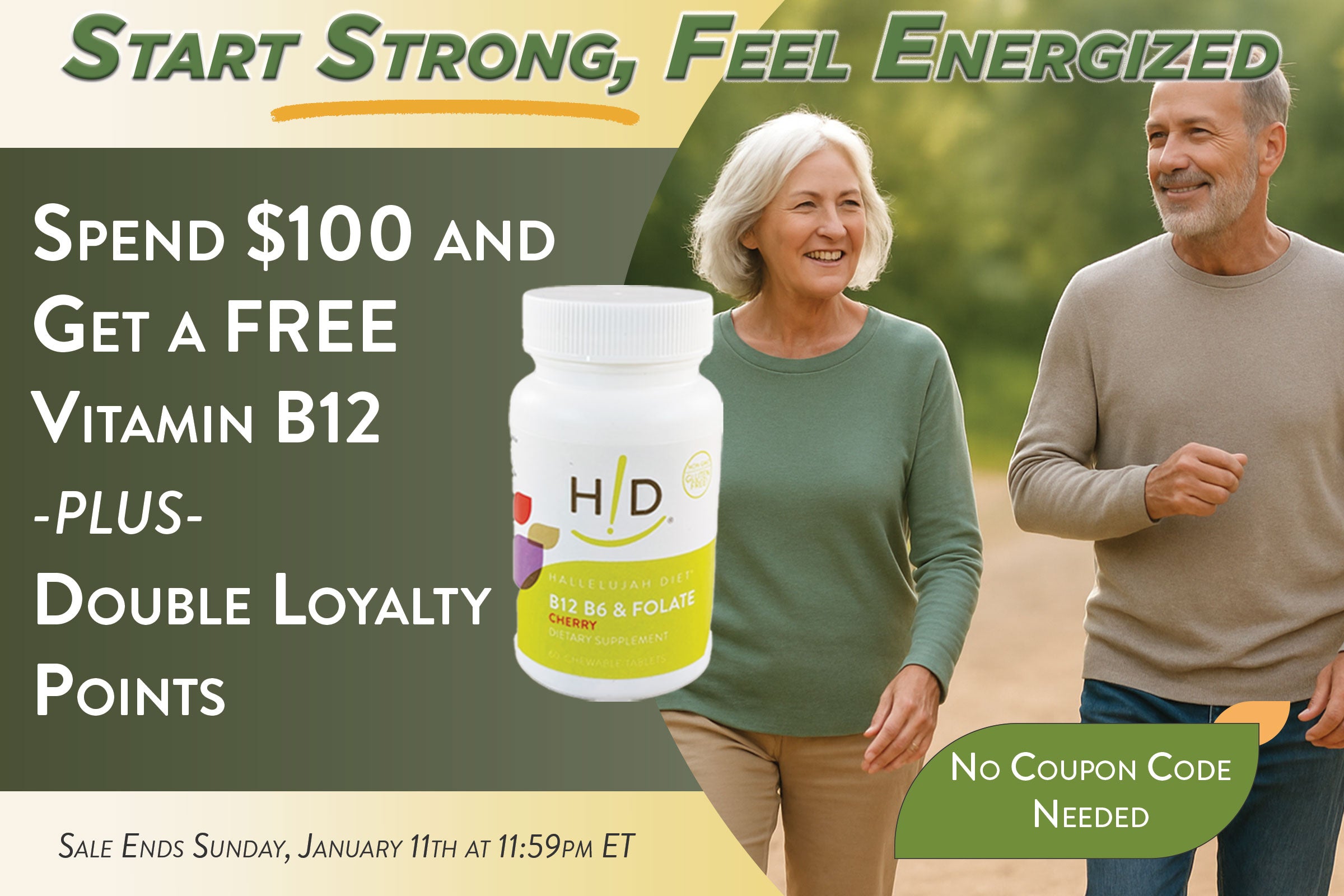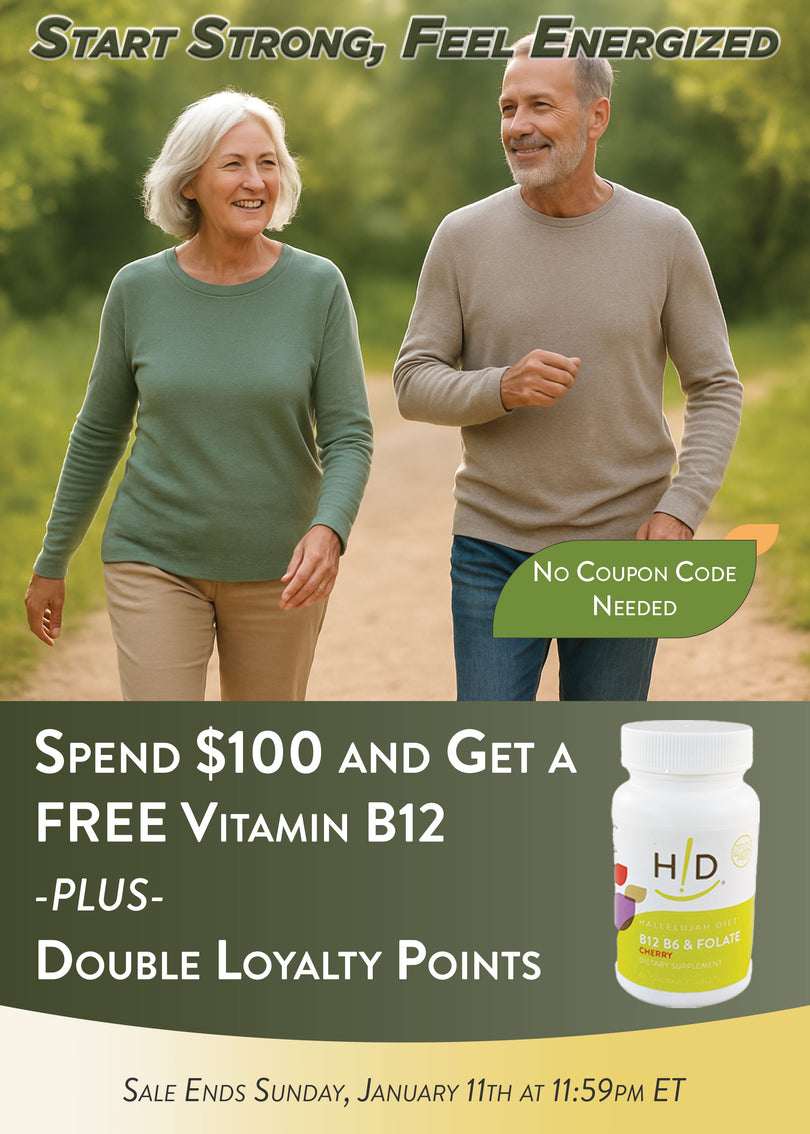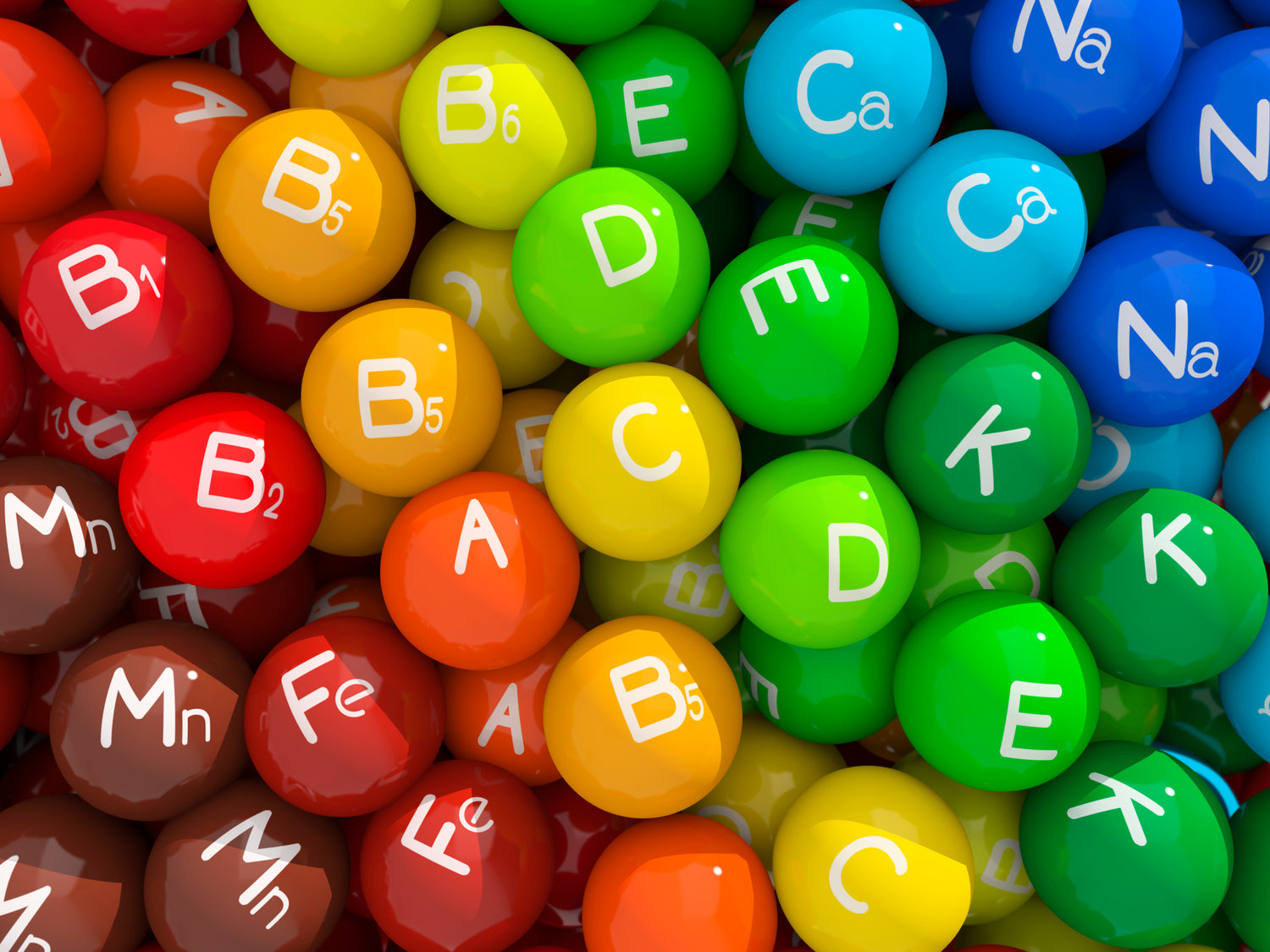Those milk ‘stache advertisements made calcium very popular, and vitamin C is ever-present in our health lingo. But how familiar are you with these lesser-known nutrients that are just as vital to your health?
Read on to spruce up your health vocabulary—and then your health itself!
Are you overlooking these important nutrients?
Iodine. Iodine supports the health of many organs in the body, and when it’s taken in milligram quantities, it’s found in nearly every tissue. Hallelujah Diet Research Director Dr. Michael Donaldson explains why you need iodine: “The thyroid cannot function properly without an adequate supply of iodine. Iodine is necessary for optimal function of the breasts, ovaries, endometrium and prostate. Iodine balances estrogen levels, thus supporting ovary health. Sufficient iodine is needed for a stable, rhythmic heart beat. Iodine attaches to insulin receptors and improves glucose metabolism, which is good news for people with diabetes. Iodine is essential for the development of the central nervous system. Women need a good supply before becoming pregnant.” Vitamin K2. You can find Vitamin K2 in natto, a Japanese fermented soy food, and in much smaller amounts in some animal foods and fermented vegetables. So what are the benefits of Vitamin K2? Hallelujah Diet Research Director Dr. Donaldson recently released a report, “Vitamin K: The missing link to prostate health,” in the journal Medical Hypotheses, underscoring Vitamin K2 as a direct contributor to the health of the prostate, as opposed to something that simply alleviates symptoms. This is following a study by the European Prospective Investigation into Cancer and Nutrition which concluded that an increase in the amount of Vitamin K2 intake can reduce the risk of prostate cancer by 35%. Beyond that, Vitamin K2 is also associated with healthier, stronger bones and brain performance, while decreasing the chances of heart disease and even cancer. Better yet? Vitamin K2 promotes a smooth, radiant complexion. In fact, there are several studies that focus on the youthfully resilient skin of the Japanese, as they consume a lot of soups made with natto.Get Your Vitamin K2 HERE.
(Note: Do not confuse Vitamin K2 with Vitamin K1. Vitamin K2 is much more bioavailable, and some scientists even think they should be considered as two separate vitamins altogether!)






